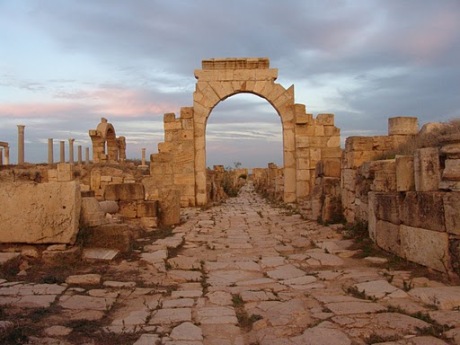
The many International Scientific Committees (ISCs) of ICOMOS allow members from around the world to form networks of expertise in particular areas of cultural heritage. Members include internationally renowned specialists in their subjects. These ISCs form the backbone of ICOMOS international collaboration and exchange of ideas. ISCs are open to experts and also to associates who are encouraged to join to build up their knowledge in a given field. Both types of members from the UK are designated by the National Committee. These three lectures focus on just three out of the 28 ISCs that now are active.
1. Monday 27th February 2012
International Committee for the Conservation of the Industrial Heritage (TICCIH)
Speaker: Stephen Hughes, TICCIH/ICOMOS expert member
TICCIH is the international organisation for industrial archaeology and the industrial heritage. TICCIH acts as adviser to ICOMOS on industrial archaeology matters and the remains of the industrial period. This first talk will look at TICCIH’s work in promoting the study, protection, conservation and interpretation of the remains of industrialisation around the world.
2. Thursday 29th March 2012
International Scientific Committee on Earthen Architectural Heritage (ISCEAH)
Speaker: John Hurd, President
ISCEAH has some 90 members representing about 50 countries from Europe, Asia, the Pacific region and the Americas. An ongoing central project for ISCEAH is the compilation and management of an online international Atlas of earth traditions around the world. Perhaps the most central function of ISCEAH is the organisation, together with other partners, of the triennial
TERRA Conference. In 2012 the 11th conference will be held in Lima, Peru, with a particular focus on risk mitigation. This second talk will include illustrations of examples of the extraordinary types of earth construction around the world.
3. Thursday 26th April 2012
International Polar Heritage Committee (IHPC)
Speaker: Michael Morrison, UK representative
The IHPC was set up in 1999 and its membership represents fourteen nations which have an interest in the Arctic and Antarctic regions. This third talk will look at the work of the IPHC in promoting international cooperation in the protection and conservation of non-indigenous heritage in the Arctic and Antarctic, as well as exploring the breadth and diverse expertise of its membership, the challenge of conservation work in these extreme climates, and the very different nature of the political situation in the Arctic and the Antarctic.
___________________________
Admission fees:
ICOMOS-UK Members – £12 (£30 for all three)
Non-Members – £15 (£40 for all three)
Students – £8 (£20 for all three)
____________________________
For further information and a booking form please contact: camillamassara@icomos-uk.org
or the ICOMOS-UK office on:
Tel: 020 7566 0031
E-mail: admin@icomos-uk.org
7 February, 2012
Categories: Events, ICOMOS-UK Events, World Heritage . Tags: archaeology, architecture, conservation, international, World Heritage . Author: icomos-uk . Comments: Comments Off on Working Internationally Evening Seminars 2012


